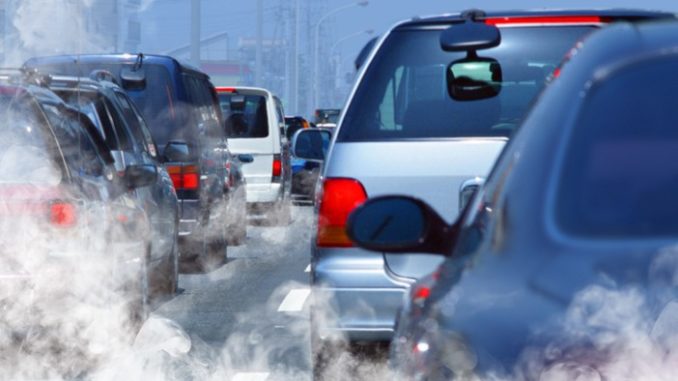
From buying house plants to changing your route to work – here’s how to limit your exposure to daily pollution
This is an edited version of an article that originally appeared on Huffington Post
It’s increasingly hard to ignore the harmful effects of air pollution on our bodies as each day new headlines warn us of the health impacts. Most recently, researchers from King’s College London (KCL) found that spikes in air pollution are responsible for triggering hundreds more heart attacks, strokes and asthma attacks in English cities compared to days when pollution levels are low.
This is on top of the fact that we know air pollution can increase a woman’s risk of miscarriage, shorten your child’s life by several months and exacerbate lung disease as much as a daily pack of cigarettes.
A number of different pollutants are cause for concern. The Daily Air Quality Index , which provides insights into air pollution levels in the UK, points to five pollutants in particular: ozone, nitrogen dioxide, sulphur dioxide, particulate matter (PM10) and fine particulate matter (PM2.5).
Minimise risks
Ultimately, it’s up to governments and businesses to do more to tackle pollution, but what can you do to minimise your exposure to harmful pollutants in the meantime?
Firstly, you can sign up to receive air pollution alerts from the Department for Environment, Food and Rural Affairs (Defra), which notifies you when pollution levels spike – this is particularly important for people with pre-existing health conditions who might be more susceptible to illness when pollution is rife.
If air pollution levels are ‘moderate’, adults and children with lung problems, and adults with heart problems are advised to reduce strenuous physical activity, particularly outdoors.Exercise has many benefits so, if possible, switch to a well-ventilated room or gym or why not try rerouting your morning run via a park instead of along the side of a main road?
Whether you cycle, run or walk to work or school, use back streets away from main roads or busy junctions (if safe to do so), suggests the British Lung Foundation. Another study published by KCL found primary school children in London were, on average, exposed to five-times-higher concentrations of nitrogen dioxide during the school run than when they were at school. Children who walked to school via backstreets were exposed to the lowest levels of this pollution, even less than those travelling in cars and buses.
If this isn’t an option for you, it might be worth trying to get to work or school a little earlier, before rush hour begins and pollution levels rise.
Do masks work?
There’s been debate over whether pollution masks work or not. Dr Gary Fuller, from KCL, previously told The Guardian a mask would be of benefit providing it uses ‘sub-micron filters to filter out the small particles’. He said a snug fit on the face is ‘critical’ to ensuring pollution stays out.
A 2018 study found face masks used to protect against pollution in Beijing varied widely in performance. Face size, shape and movement throughout the day meant a leakage rate – where pollution particles entered the mask – of up to 68%.
“Even if the filtration efficiency of the mask is high, and the mask fits the person initially, the mask may not continue to give a good fit as the person goes about their daily activities – walking, talking, and more,” senior study author Miranda Loh, from the Institute of Occupational Medicine in Edinburgh, told Reuters.
On days when pollution is ‘high’ or ‘very high’ , those with asthma are advised to carry inhalers at all times, says Defra, and they may find they need to use their inhalers more often. If the levels start to cause symptoms like sore eyes, a cough or a sore throat – sufferers might want to consider working from home, if possible, or reducing their outdoor activity.
Home sweet home
It’s worth bearing in mind that air pollution can also begin at home – levels rise when there is smoke in the air from wood stoves or fireplaces. Try to open windows, or use the extractor fan, when cooking to let out any pollution, suggest the organisers of Clean Air Day, which happens on 18 June every year and is run by Global Action Plan. This will also help reduce the amount of moisture in the air, preventing mould over the winter months. If you’re concerned about opening your windows because you live on a busy road, try opening back windows, facing away from the road, instead.
Lastly, invest in some house plants; not only do they brighten up your front room, but a study by NASA found they also help to remove pollution from the air. A plant needs about two weeks to detect the pollutants and build the different enzymes needed to metabolise them, the study says. “In the meantime, the plant is also helping improve indoor air quality by humidifying the air, because plants release water vapour as part of photosynthesis and respiration,” explains the study.
Don’t forget to follow us on Twitter, or connect with us on LinkedIn!

Be the first to comment